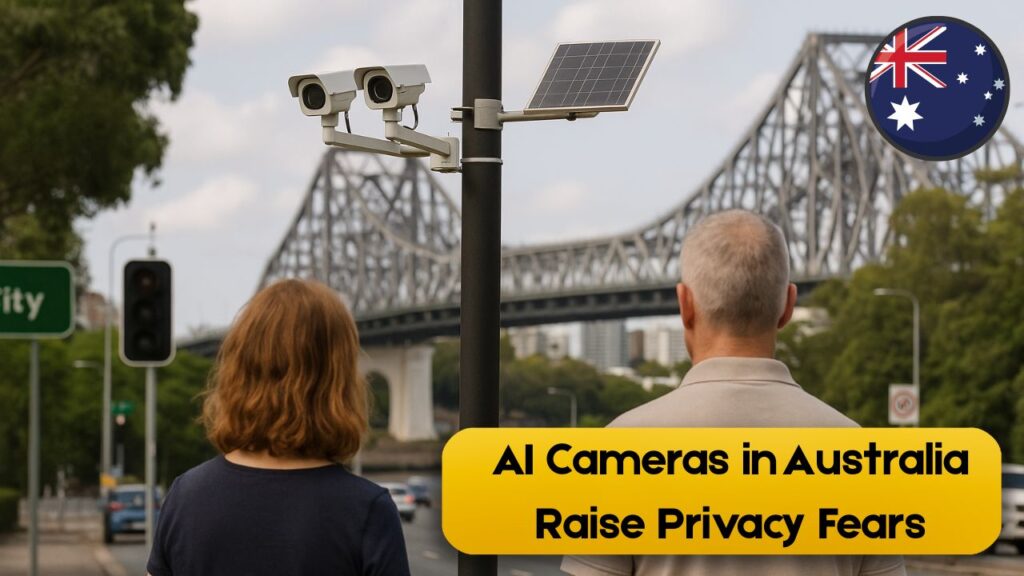Artificial Intelligence (AI) traffic cameras have sparked a major privacy debate in Australia after a recent Queensland report revealed concerns about data collection and misuse. These smart cameras, initially introduced to catch drivers using mobile phones or not wearing seatbelts, are now being questioned for how they process and store personal information. While authorities claim the technology improves road safety, experts and privacy advocates warn that it could lead to mass surveillance. The Queensland report urges stricter data handling policies and transparency about how AI systems make enforcement decisions.

AI Traffic Cameras in Australia: Key Findings from the Queensland Report
The Queensland government’s latest report highlights that AI traffic cameras can record more than just traffic violations — they can also capture personal details, such as faces, license plates, and even passenger movements. This raises major privacy concerns among Australian citizens. The report recommends clearer policies on how long this data is stored, who can access it, and under what conditions it can be shared with law enforcement or private companies. While these cameras help reduce road accidents, the balance between public safety and privacy is now under serious discussion.
Privacy Concerns Raised by Australian Citizens and Experts
Privacy experts across Australia have voiced strong opinions about AI-powered surveillance technology. Many fear that without strict regulations, these systems could be used beyond their original purpose, leading to unwarranted data tracking. Australians have expressed concerns about the lack of public consultation before deploying AI cameras on highways and urban areas. The Queensland Civil Liberties Council has also demanded regular audits to ensure that collected data isn’t used for profiling or commercial gain. Such calls reflect a growing demand for transparency and accountability in digital monitoring systems.
Government Response and Future of AI Traffic Cameras in Queensland
In response to rising concerns, Queensland’s Department of Transport and Main Roads stated that all AI traffic cameras comply with national privacy standards. However, the report recommends strengthening oversight mechanisms to ensure compliance. Authorities are considering measures such as limited data retention, secure encryption, and independent privacy reviews. Future plans may also include public awareness campaigns explaining how AI traffic enforcement works. The government aims to reassure citizens that the technology’s purpose remains strictly for road safety, not surveillance.
Impact of AI Surveillance on Road Safety and Personal Privacy
While AI traffic cameras have successfully detected thousands of offences since their introduction, the debate over privacy versus safety continues. Supporters argue these systems save lives by discouraging distracted driving, while critics believe the invasive data collection methods outweigh the benefits. The Queensland report calls for a national framework regulating all AI-based traffic systems to prevent misuse. Balancing innovation and privacy will be key as Australia embraces smart technology for its road safety programs.
| Aspect | Details |
|---|---|
| Technology Used | AI-enabled cameras with machine learning for image recognition |
| Primary Purpose | Detecting mobile phone use and seatbelt violations while driving |
| Location | Implemented across major highways and cities in Queensland, Australia |
| Privacy Concern | Potential misuse of recorded personal and facial data |
| Recommended Action | Stronger data protection laws and independent audits |
FAQs on AI Traffic Cameras and Privacy in Australia
1. What are AI traffic cameras used for in Australia?
They detect mobile phone usage, seatbelt violations, and other traffic offences.
2. Why are Australians concerned about AI traffic cameras?
People worry about privacy breaches and misuse of collected personal data.
3. Which Australian state raised these privacy issues?
Queensland led the discussion through an official government report.
4. What actions are recommended to protect privacy?
Experts suggest stricter laws, transparency, and regular data audits.





